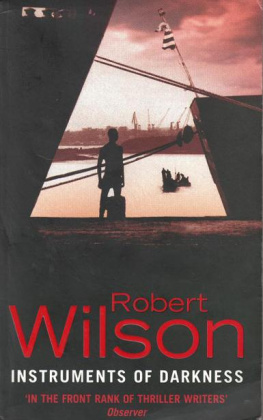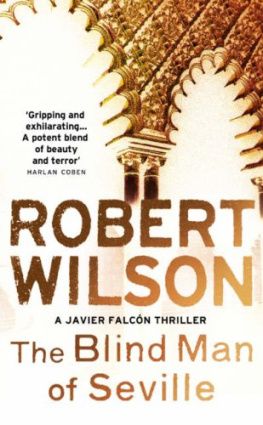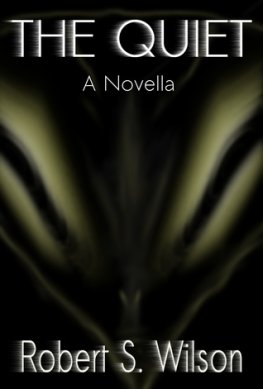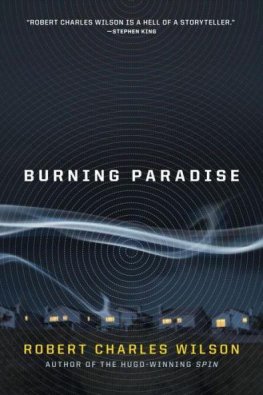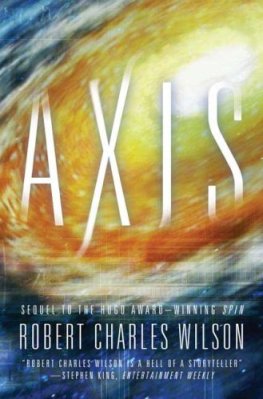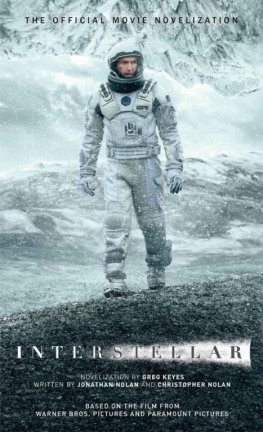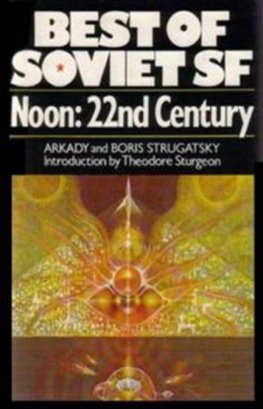Robert Wilson - Bios
Here you can read online Robert Wilson - Bios full text of the book (entire story) in english for free. Download pdf and epub, get meaning, cover and reviews about this ebook. year: 1999, publisher: Tor Books, genre: Science fiction. Description of the work, (preface) as well as reviews are available. Best literature library LitArk.com created for fans of good reading and offers a wide selection of genres:
Romance novel
Science fiction
Adventure
Detective
Science
History
Home and family
Prose
Art
Politics
Computer
Non-fiction
Religion
Business
Children
Humor
Choose a favorite category and find really read worthwhile books. Enjoy immersion in the world of imagination, feel the emotions of the characters or learn something new for yourself, make an fascinating discovery.

- Book:Bios
- Author:
- Publisher:Tor Books
- Genre:
- Year:1999
- ISBN:978-0-312-86857-4
- Rating:5 / 5
- Favourites:Add to favourites
- Your mark:
- 100
- 1
- 2
- 3
- 4
- 5
Bios: summary, description and annotation
We offer to read an annotation, description, summary or preface (depends on what the author of the book "Bios" wrote himself). If you haven't found the necessary information about the book — write in the comments, we will try to find it.
Bios — read online for free the complete book (whole text) full work
Below is the text of the book, divided by pages. System saving the place of the last page read, allows you to conveniently read the book "Bios" online for free, without having to search again every time where you left off. Put a bookmark, and you can go to the page where you finished reading at any time.
Font size:
Interval:
Bookmark:
Bios
by Robert Charles Wilson
PROLOGUE
The regulator lay deep in the flesh of the girls upper arm, a pale egg in a capillary nest. Anna Chopra pared away the tissue with careful strokes of the hemostatic scalpel. Her small, expert hands wanted to tremble. She willed them to be steady.
This was, she knew, an act of sabotage. She was performing a surgical intervention without consent; worse, she was interfering with an instrument of the Trusts. Violating the law, if not, perhaps, her Hippocratic oath.
She was alone with the unconscious and sedated girl, and that had been part of the temptation. In any operating theater on Earth, she would have been surrounded by colleagues and students. On Earth, one was always surrounded. Here, at least for the moment, she was surrounded only by mute machinery and surgical tools dangling on coiled wire in the near-weightless environment. No audience, hence no witnesses: she was trustworthy, or so the Trusts believed.
The thymostat had been installed in the girls arm years ago. It had gone about its business flawlessly and showed no sign of failing now. The thermostat of the soul, her professor at Calcutta had called the common bioregulator. It was, in effect, an artificial gland, monitoring blood levels and maintaining self-synthesized doses of n euro transmitters and inhibitorsleveling moods, sustaining alertness, suppressing fatigue. Anna Chopra wore one herself, as did most Terrestrial technicians and managers.
But this girlyoung woman really, though she looked like an infant from the perspective of Annas seventy yearsthis Zoe Fisher was different. Zoe Fisher was a creation of the Devices and Personnel branch of the Trusts. She had been bred and modulated for her work on the distant world of Isis. She was, essentially, a human machine. Her bioregulation was spectacularly thorough; Anna, did not doubt that the girls every bad dream and brief ecstasy had been monitored, calculated, and soothed by this small but complex thymostat well before she learned to speak.
The bioregulator had put tendrilssamplers and dripsinto the brachial artery and the ulnar collaterals. Anna Chopra severed the connections neatly and professionally, watching as the remnant pieces, self-suturing, merged into the arterys pulsing wall. The thymostat itself, about the size of a robins egg and plump with blood, she pushed into the intake of a waste-disposal chute. Stray blood droplets drifted toward a gurgling air drain.
Why this small act of sabotage, why now? Maybe because a life rime of obedience had left Anna Chopra feeling stale and futile. Maybe because this girl reminded Anna of her sisters, three of whom had been sold into the state brothels in Madras as a result of her familys financial reverses.
Brothel inmates were happy, everyone saidthoroughly trained and exhaustively bioregulated.
Young Zoe Fisher had probably never been near a brothel. But she was just as surely a slave, and her thymostat might as well have been a leg iron or a steel collar. Since she left Earth, Anna Chopra had met many technicians from the Kuiper Republics, none of whom wore regulators of any kind, and she had come to envy their spontaneity, their wealth of moods, their rawness. She might have been such a person herself, given the opportunity. Given another lifetime.
Let the Trusts find out what happened when one of their marionettes woke up without its strings.
Oh, most likely the theft would be detected and a new regulator installed. But maybe not. Zoe Fisher was bound for Isisthe farthest outpost of human exploration, far beyond even the isolated kibbutzim of the Kuiper Republics. A frontier, where the power of the Trusts was limited.
Anna Chopra closed the incision and sealed it with a gel rich in regenerative nanobacters. Finished with her act of sabotage and instantly guilty about what she had doneAnna proceeded to her real work, rotating the girls unconscious body in its surgical sling, cutting into the abdominal muscles to replace a depleted blood filter. Zoe was full of new technology, mainly immune-system enhancers of a kind Anna had never seen before. Bloody white biomodules clustered around the abdominal aorta like insect eggs on milkweed. Anna ignored these mysterious devices; she replaced the defective renal filter and closed the muscle tissue with more gel.
And was finished. She instructed the anesthistat, a hulking black tractible robot, to bring Zoe up to a natural sleep state and maintain the analgesic drip. At last she stripped off her gloves and stepped back from the surgical sling.
Now her hands began to shake in earnest. Annas seventy years were about half the average lifetime of a senior manager or a member of the Families, but she was a mere Level Three technician and her telomerases were rapidly running out. According to her career schedule, she would be in a Terrestrial geriatric hospice before the end of the decade. Where she could allow her hands to tremble freely while she waited for degenerative disease or quota euthanasia to end her lifeher functional, perfect life as a good citizen of the Trusts and servant of the Families.
Barring the occasional act of defiance.
She glanced reflexively over her shoulder, but of course there was no one to witness her criminal act. This small cometary objectthey called it Phoenixwas very nearly uninhabited now. All but the vital staff had left in preparation for the Higgs launch. Nor was physical evidence a problem. Before very long, nothing would remain of Phoenix but scattered radioactive particles and Cherenkov radiation.
Embers and ashes. The thought was soothing, somehow. Her rapidly beating heart began to slow. All that persisted, Anna told herself, were embers and ashes, sparks and dust.
* * *It was the Kuiper technicians who had named this planetisimal Phoenix. Even a small world, they insisted, ought to have a name before it ceased to exist.
Phoenix rolled around the sun well beyond the orbit of Neptune and above the plane of the solar eclipticthe desert of the solar system. In a matter of hours now, Phoenix would die in the most dramatic possible fashion. And when Phoenix vanished from the solar system, so would Zoe Fisher.
The technicians suiting Zoe for the launch seemed in awe of tier, though they had rehearsed this act countless times. In awe, at least, of the forces to which Zoe would soon be subjected. If they could, Zoe thought, they would write their names on her body, like twentieth-century war pilots autographing a missile.
But she was not a missile. She was simply cargo. Five and a half feet and one hundred and thirty pounds of cargo. No different from the three other human beings, several hundred clonal mouse and pig embryos, and sundry supplies also bound for Isis. Soon enough, they would all be loaded into the catacombs of the Higgs sphere buried in the icy core of Phoenix.
The pre-launch supervisorhe was one of those long-faced Terrestrial kachos who serviced starships and their cargo but would never dare dream of riding one himselfapproached Zoe where she sat half-embedded in her armor. His lips were pursed into a frown. Theres a call for you, Citizen Fisher.
This late in the launch sequence, Zoe thought, it must be someone with a great deal of clout, someone highly placed in the Trusts or at leastdare she hope?in the Devices and Personnel branch. The lower half of her body was already entombed in the bulky journeyrig, steel sheaths too massive to lift, under any kind of spin, without the help of powerful hydraulics. She felt like a knight-errant about to be winched onto her horse. Helpless. Who is it?
Your D-and-P man from the Diemos installation.
Theo. Of course. She grinned. Float me a monitor, please.
He made a sour face but brought her a screen. The suiting room was cramped, but so was every chamber inside the cometary fragment. Much of Phoenix had been excavated to contain the fusion launcher and payload, the small worlds water-rich debris vectored off to reclamation points nearer the sun. These pressurized chambers were essentially makeshiftwhy waste labor on a habitat meant to be vaporized? The room around her was as stark as the Turing constructors had left it, medical and technical gear strapped randomly to the flat white walls.
Font size:
Interval:
Bookmark:
Similar books «Bios»
Look at similar books to Bios. We have selected literature similar in name and meaning in the hope of providing readers with more options to find new, interesting, not yet read works.
Discussion, reviews of the book Bios and just readers' own opinions. Leave your comments, write what you think about the work, its meaning or the main characters. Specify what exactly you liked and what you didn't like, and why you think so.

